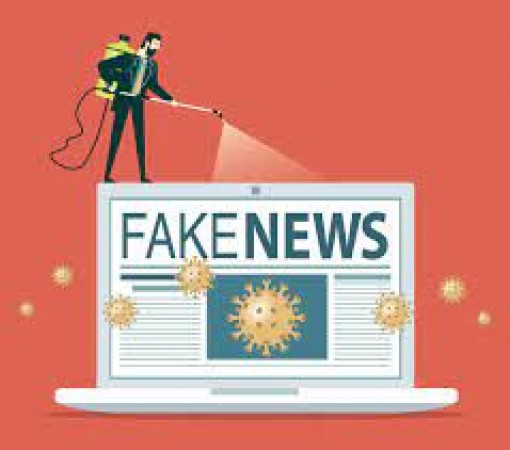
The media plays a crucial role in shaping public opinion and influencing societal discourse on political and social issues. However, the composition of the media has become a topic of intense controversy. As society becomes more polarized and the spread of information accelerates through digital platforms, concerns about media bias, manipulation, and ethics have come to the forefront of public debate. This article delves into the controversies surrounding the composition of the media concerning political and social topics, exploring the impact on individuals and society as a whole.
The Role of Media in Society
The media serves as a vital intermediary between events and the public, providing information, analysis, and context. Its role in shaping public perception cannot be overstated, as media outlets have the power to influence how people interpret and respond to various issues. However, with this power comes great responsibility, and the impartiality of media reporting has come into question.
Media Bias and Its Impact on News Reporting
Understanding Media Bias
Media bias refers to the systematic favoritism or prejudice towards certain ideologies, political affiliations, or social groups in news reporting. While it is nearly impossible for any media outlet to be entirely objective, some are accused of consistently skewing their coverage in a particular direction.
The Effects of Media Bias on Public Perception
Media bias can significantly impact public perception, as individuals may be exposed to only one side of a story, leading to distorted views on complex issues. This can contribute to the polarization of society, with people retreating into their respective echo chambers.
Polarization in Media Outlets
Echo Chambers and Filter Bubbles
Echo chambers occur when individuals are only exposed to information that reaffirms their existing beliefs, while filter bubbles are created when algorithms show users content that aligns with their preferences. Both phenomena contribute to ideological divisions and hinder meaningful dialogue.
The Dangers of Polarization
Polarization in media can foster animosity between different groups, leading to a breakdown in civil discourse. As individuals become more entrenched in their opinions, finding common ground and seeking compromise become increasingly challenging.
Manipulation of Information
Misinformation and Disinformation
Misinformation involves the spread of false or misleading information without the intent to deceive, while disinformation is intentionally false information designed to mislead and deceive the public. Both can have severe consequences on public understanding of political and social issues.
The Spread of Fake News
The rise of social media has facilitated the rapid spread of fake news, making it difficult for users to discern between credible and unreliable sources. This phenomenon has significant implications for public trust in media outlets and institutions.
Social Media's Influence on Controversy
The Rise of Social Media Platforms
Social media has become a powerful force in shaping public opinion. With billions of users worldwide, platforms like Facebook, Twitter, and YouTube have become primary sources of news and information for many people.
Amplification of Divisive Messages
The nature of social media algorithms tends to prioritize sensational or divisive content, amplifying controversial messages. This can contribute to the spread of misinformation and further polarize society.
Ethical Concerns in Journalism
Clickbait and Sensationalism
To compete for audiences in the digital age, some media outlets resort to clickbait and sensational headlines, sacrificing accuracy and context for higher engagement. This compromises the integrity of journalism.
The Need for Responsible Reporting
Maintaining ethical standards in journalism is crucial for restoring public trust. Responsible reporting involves thorough fact-checking, balanced coverage, and a commitment to accuracy and fairness.
The Role of Government and Regulation
Media Ownership and Control
Concerns over media concentration have led to discussions about media ownership and its impact on the diversity of perspectives presented to the public. The potential for undue influence from powerful entities raises questions about the need for regulation.
Balancing Freedom of Speech and Responsibility
Regulating the media is a delicate balancing act between protecting freedom of speech and ensuring responsible journalism. Striking the right balance is essential for upholding democratic values and fostering an informed citizenry.
Fact-Checking and Media Literacy
Promoting Media Literacy Education
Empowering individuals with media literacy skills is crucial in the digital age. Educating the public on how to critically evaluate information can help combat the spread of misinformation.
The Fight against Misleading Information
Fact-checking initiatives by reputable organizations play a vital role in identifying and debunking false information. These efforts contribute to a more informed public discourse.
Overcoming Controversy in Media
Collaborative Journalism Initiatives
Collaborative journalism projects, where multiple media organizations work together, can help present a broader range of perspectives and foster a more comprehensive understanding of complex issues.
Seeking Diverse Perspectives
Encouraging diversity in newsrooms and promoting diverse voices in media content can help reduce biases and provide more comprehensive coverage of political and social issues. The controversy surrounding the composition of the media on political and social issues underscores the importance of responsible journalism, media literacy, and ethical reporting. In an era of information overload, individuals must be vigilant in critically evaluating the news they consume and seeking diverse perspectives. Only by fostering a more informed and engaged public can we overcome the challenges posed by media bias, polarization, and manipulation.
Overcoming Disparities: Building a Fair and Just Society for Every Tribe
PM Modi Distributes 70,000 Appointment Letters at Rozgar Mela
Special Education Teacher: Empowering Minds and Changing Lives